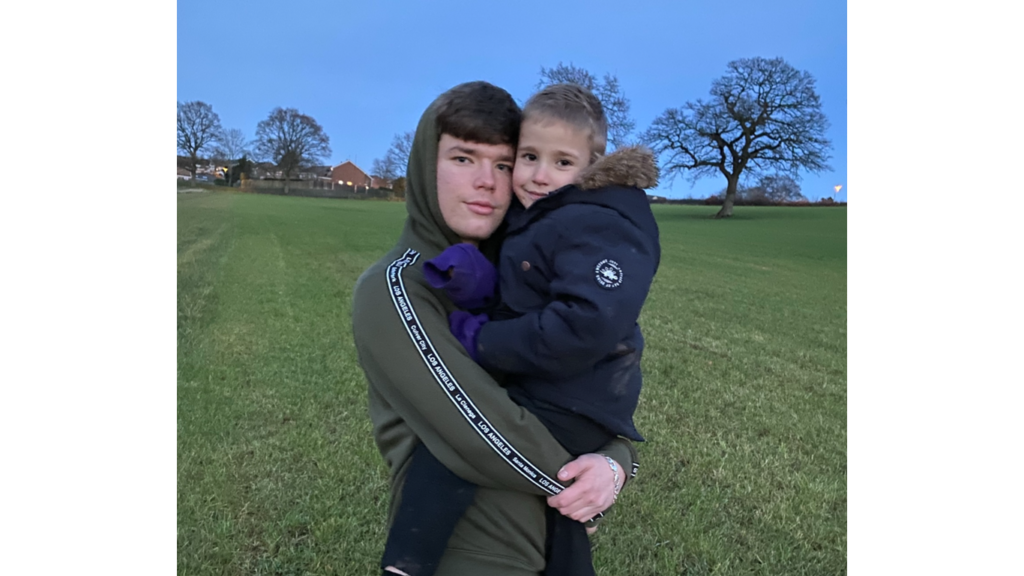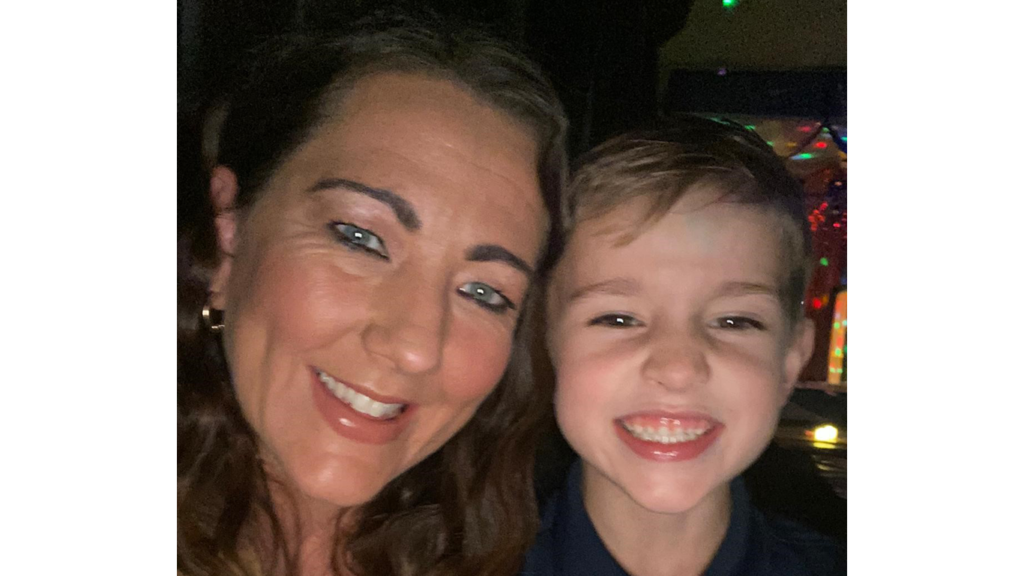The Insight: Caring for Birmingham’s Families

Midland Mencap is one of the region’s leading learning disability charities with a strong, respected, and established reputation for excellence and innovation. Employees span across the West Midlands, with a vast variety of roles and daily routines. No two days are the same and neither are the positions we offer here.
The vision of our Job Insights monthly blog is to give employees and roles a chance to educate, explore and celebrate all the hard work we know they do. It aims to allow roles that, if you didn’t know were there, wouldn’t necessarily be known about. We hope you’ll come away with a better understanding of who exactly makes up the amazing Midland Mencap team.
This Christmas, we interviewed Sarah Lynch who one of our amazing Family Project Workers. We chatted about family, managing work-life balance and being a family-carer herself. Sarah has three boys and one girl, two of which have learning disabilities, so she understands the struggles and the joys of life, all too well. Throughout the interview, Sarah’s zest for life, passion for Birmingham and families who are parent-carers themselves, significantly shined through.
Sarah began by explaining what a Family Project Worker does, stating that their team is there to support, encourage and guide carers. The team is split across the five areas of Birmingham – North, South, East, West and Central. Sarah is responsible for the South. Sessions are split between either one-on-one and individual focus or group work.
One on one support can include their initial assessment; identifying what might be missing, seeing where they need additional support, making an action plan and then ensuring it is put into place for them. Support can include respite care, additional funding, helping them find the correct school placements and encouraging them to partake in meaningful things to do as a family, that are inclusive.
Group work is more social, in that Midland Mencap offers coffee mornings, Musical Meet Ups, small group sessions and parent-carer training. Sarah runs ‘drop-ins, so if they can’t commit to weekly support groups or coffee mornings, they can just pop and see me, ask for general advice.’ She explained that whilst some issues may be able to be resolved there and then, some are then be referred through the wider Family Carers team as it’ll require further support.
Sarah, being a parent-carer as well, knows the realities of what carers go through. Her passion lies within supporting them at whatever point in the process they are at – whether newly diagnosed, needing resources or simply going through the motions of every day life. Reflecting on her own experiences, Sarah explained, “I wish I had somebody in my corner with me. Just to sit in meetings, if I didn’t understand something, or I was so emotional I couldn’t take it all in; somebody in a professional role sat next to me, taking it all in for me and can that on-going support afterwards”. Her experience and wisdom of being a parent-carer herself has allowed her empathy to shine through significantly, because she understands entirely the difficulties new, and seasoned, carers may often face.
The way Sarah ran through memories of her children growing up – appointments, assessments, learning to adapt daily life to a new narrative – was really striking in that her compassion for others and her patience for their situations was unending. From having to change simple words and phrases, to recognising how to communicate with her youngest especially, as he was non-verbal for the first four years of his life (he is now 6 years old); “playing catch up” to get him to a higher level of development was a learning-curve they had to quickly learn. Whereas her older son, who was diagnosed as a teenager, needed structure and routine. Their situation resulted in him moving schools, where he thrived under the new circumstances. Being able to support her children, experiencing the different elements that come with being a parent-carer, Sarah explained that she feels well-equipped to support others, too.

But was working in the Third/Charity sector always the goal? When Sarah left school at 16, with GCSEs but no A Levels to her name, she enrolled in a Hairdressing course at college. However, she found that once she begun to have children at aged 18, her career focus began to evolve. Originally working in the private sector, Sarah realised that there were many more people out there who didn’t have the money to such high-quality care, support and guidance, and so, found herself entering the charity sector. She “absolutely loved” the face-to-face opportunities to support citizens with mental health whilst working for a charity in Sandwell, “reaching individuals in their homes and offering that level of support”.
Ultimately, that passion for others led Sarah to Midland Mencap; “it just feels right to me that care and support is accessible to everybody”. Front line work is where she feels she’ll stay (and we’ll be exceptionally glad to have her continue to stay!). We asked Sarah if her 14-year-old self would have thought she’d be in this line of work in her now-thirties; she replied, “Yeah! I think so. I always knew I wanted to be a Mum, wanted to give and care for people. It’s just within me.” With having two children that have Learning Disabilities, it has given Sarah the opportunity to broaden that skill set and expertise of caring on not just a professional level, but a personal one, too.
Our Family Carers teams work with such a range of people, from a variety of backgrounds and circumstances, which results in every day looking a little different to the next. Sarah explained that every family that are involved in the work we do has a different story; “every family is equally important, regardless of their diagnosis or going through a diagnosis, the fact they are caring for their mum and they have dementia, or the fact they have MS – they are all carers, so we go in with eyes wide open to whatever their needs may be.” This can be touching base with carers, especially if they need additional support due to child protection plans in place or be in an emotionally vulnerable situation. As a result of how much time and energy Carers invest into their roles and lives of those they care for, it can become their identity, which is why Sarah always begins every session with a new carer getting to know who they are. She explained that so often they can get so wrapped up in appointments, assessments, new information constantly and they forget that they have an individual identity, too; “I find that’s a really important question for me – ‘can you tell me who you are? Not the carer, not the Mum; who are you?’”. It begins to humanise their experiences again, giving them ownership of their identity.
Christmas can be a difficult time for carers for many reasons. Children, for example, are not in school. This can become an issue for those carers that may be quite isolated, with no family or friends around to support. In addition, the festive period can bring a lot of change – something which can be challenging for those with Learning Disabilities. Something as simple as going to the supermarket to do the weekly shop can become a huge mountain due to things like the music in the background being different, Christmas items being on the shelves, shops are much busier.
That being said, Sarah pointed out, there have been significant improvements in the last few years for accessibility and accommodating alternatives. For instance, whilst visiting Santa’s Grotto is an activity many families partake in during the Christmas period, it can be quite a demanding experience for those with Learning Disabilities. That being said, there are some garden centres across the West Midlands that, during pre-booking, will offer a space for accessibility suggestions or comments, to support your visit. Visual aids can also be a beneficial tool for parent-carers, such as presenting a structure or order of their day, allowing them the time to process any change that might occur. Or, preparing the child(ren) by showing them pictures of Santa, what a Grotto might look like, what sounds might be around and explaining what the experience will entail. Such tools won’t erase their potentially difficulties, but it might offer a softer approach that could lead to a smoother day for them and the family.
Sarah explained that many parents – both those who care for others and even those that don’t – feel high amounts of pressure of the Christmas period. From present giving, to cooking the perfect dinner, to ensuring everyone is happy throughout the day. But regardless of if whether things go to ‘plan’ or not – they may not want to open their presents, or they want to eat something different – it’s important not to worry about it. If, for example, you are due to see family at a certain time, but you know that it simply won’t happen, Sarah recommends you communicate with your family. “I’m pretty sure family will understand. Communication with family and friends, not just with your cared for, will go a long way.”

Ultimately, being a parent-carer and being part of the Family Carers team is hard but rewarding work. It is possible to branch into this line of work without qualifications – Sarah explained that whilst she has built up an impressive portfolio of training over the years, she left school with only GCSEs at age 16. “I just think these types of roles, it’s not about what’s on paper; it’s about what’s in your heart and what you want to achieve, wanting to give.” It’s an emotionally demanding role, and it certainly isn’t for everyone; but within the wider Midland Mencap team, it’s one part of the cog that ensures our organisation runs smoothly and that we can reach out, support, and engage with the most vulnerable within the West Midlands. Midland Mencap offer support in a holistic way.
“Sometimes the only thing to say to carers is that it is hard, to give that validation, that ‘what you are going, Mum, is hard and you should be so proud that you are getting up everyday and still doing it’”.